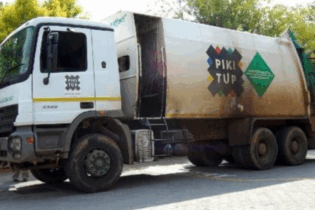Environment minister Barbara Creecy has gazetted draft amendments to the National Environmental Management Act in a move to phase out certain types of plastic bags.
Among the most important amendments is the ban on the manufacture, trade, and distribution of domestically produced and imported plastic carrier bags and plastic flat bags that do not conform to specifications for use in South Africa. The Department of Environment, Forestry, and Fisheries said that amendments focus on “post-consumer recyclate” material generated by households and other end users. In terms of the directive, which was published on 7 August, plastic carrier bags and plastic flat bags must be made from a minimum of 50% “post-consumer recyclate” from 1 January 2023. In this instance, ‘post-consumer recyclate’ is defined as material generated by households or by commercial, industrial and institutional facilities in their role as end-users of the product which can no longer be used for its intended purpose The proposed amendments outlines the following ‘phase-out’ schedule:
- The plastic carrier bags and plastic flat bags must be made from a minimum of 50% post-consumer recyclate by 1 January 2023;
- The plastic carrier bags and plastic flat bags must be made from a minimum of 75% post-consumer recyclate by 1 January 2025;
- The plastic camer bags and plastic flat bags must be made from a minimum of 100% post-consumer recyclate by 1 January 2027.







